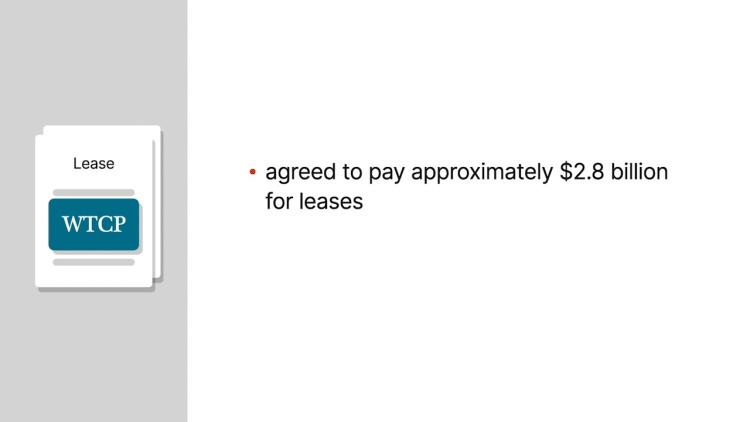In re September 11th Litigation
United States District Court for the Southern District of New York
590 F. Supp. 2D 535 (2008)

- Written by Josh Lee, JD
Facts
The Port Authority of New York and New Jersey, Inc. was created as a nonprofit, bi-state agency. The Port Authority was granted responsibility for constructing and operating the World Trade Center. The construction began in 1965 and cost approximately $1 billion. The Port Authority decided to privatize the World Trade Center and initiated a competitive bidding process. World Trade Center Properties LLC (plaintiff) (WTCP) ultimately won the bid for Towers One, Two, Four, and Five for consideration valued at $2.805 billion. WTCP was granted 99-year net leases on each of the towers. Under the agreements, WTCP was obligated to rebuild, restore, repair, and replace the towers if they were damaged. The transaction was completed on July 16, 2001, which was 55 days before the terrorist attacks on September 11th. The attacks destroyed all four towers. After the attacks, Congress adopted a law that limited liability for airlines and other entities involved to the limits of liability insurance coverage maintained by that entity, to prevent devastating potential liability to those entities. Congress also appropriated money to the Victim Compensation Fund to guarantee compensation to victims. WTCP sued American Airlines, United Airlines, and other aviation companies (defendants), alleging negligence. WTCP sought recovery of the replacement value of the towers, which was alleged to be $16.2 billion. The defendants filed a motion for summary judgment, arguing that the damages cannot exceed the market value of the property.
Rule of Law
Issue
Holding and Reasoning (Hellerstein, J.)
What to do next…
Here's why 905,000 law students have relied on our case briefs:
- Written by law professors and practitioners, not other law students. 47,100 briefs, keyed to 995 casebooks. Top-notch customer support.
- The right amount of information, includes the facts, issues, rule of law, holding and reasoning, and any concurrences and dissents.
- Access in your classes, works on your mobile and tablet. Massive library of related video lessons and high quality multiple-choice questions.
- Easy to use, uniform format for every case brief. Written in plain English, not in legalese. Our briefs summarize and simplify; they don’t just repeat the court’s language.





